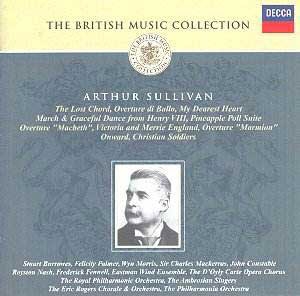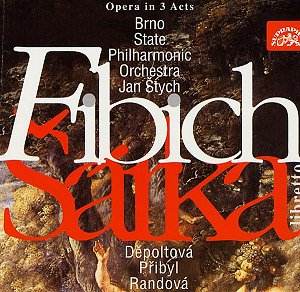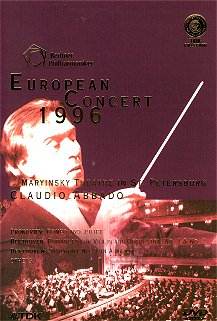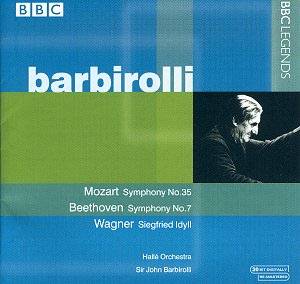 Composer: Sir Arthur Sullivan
Composer: Sir Arthur Sullivan
Works: The Lost Chord, Onward Christian Soldiers, Overture di Ballo, March and Graceful Dance, Overture, Macbeth, Suite No 1, Victorian and Merrie England, Overture, Marmion, My Dearest Heart, Pineapple Poll Suite
Performers: Various soloists, bands, and orchestras
Recording: 1966-1975? ADD DECCA – THE BRITISH MUSIC COLLECTION 468 810-2 [71’31”]
Label: Decca
Sir Arthur Sullivan, celebrated primarily for his collaborative operettas with W.S. Gilbert, was also a prolific composer whose works span a multitude of genres, including orchestral, choral, and sacred music. This collection, part of Decca’s British Music Collection, offers a glimpse into the less-frequented corners of Sullivan’s oeuvre, largely stepping aside from the well-trodden path of the Savoy operas to explore his orchestral and choral compositions. While this disc features some vocal items, it is the instrumental works that provide a deeper understanding of Sullivan’s eclectic style and his contributions to British music.
The performances throughout this compilation evoke a sense of nostalgia for the era of the d’Oyly Carte Opera Company, particularly in the excerpts from “Henry VIII” and “Marmion.” Royston Nash’s conducting of the Royal Philharmonic Orchestra delivers a solidly engaging interpretation of these pieces. Notably, the “Macbeth” overture showcases Sullivan’s adeptness at orchestration and thematic development, reminiscent of Mendelssohn’s influence, particularly in its lyrical lines and dynamic contrasts. The lush strings and clarion brass establish a dramatic narrative that aligns well with the Shakespearean source material, displaying Sullivan’s ability to craft music that is both evocative and technically proficient.
Among the vocal selections, Stuart Burrows’s rendition of “The Lost Chord” is nuanced, highlighting the poignant harmonies that Sullivan deftly employs. However, the addition of a choir feels somewhat superfluous, detracting from the intimacy of the solo line. Conversely, Felicity Palmer’s interpretation of “My Dearest Heart” demonstrates a commendable understanding of the lyrical sensitivity Sullivan is known for, even if the overall arrangement lacks the vibrancy one might expect. The inclusion of “Onward Christian Soldiers,” arranged by Eric Rogers, unfortunately, leans towards a bombastic presentation that risks overshadowing the original’s gentle spirit, bordering on a parody rather than a tribute.
The standout track, however, is undoubtedly the “Overture di Ballo,” conducted by Sir Charles Mackerras. This performance encapsulates the essence of Sullivan’s light orchestral style, featuring a blend of Mendelssohnian elegance and French musical influences that shimmer in the orchestration. Mackerras’s interpretative choices, particularly in the work’s rhythmic vitality and orchestral color, breathe new life into a piece that, while lesser-known, is richly deserving of attention. The Eastman Wind Ensemble’s interpretation of the “Pineapple Poll Suite,” arranged for wind band, serves as a jubilant conclusion to the disc, offering a delightful amalgamation of Sullivan’s operatic melodies that resonates with charm and playfulness.
Sound quality across the recordings is commendable, with a warm, resonant ambiance that serves the orchestral textures well. The engineering captures the clarity of individual lines while maintaining a cohesive ensemble sound, allowing for a pleasurable listening experience. However, the presentation could benefit from more detailed program notes, particularly for the movements within “Victoria and Merrie England,” which are left unexplained.
This collection serves as a valuable testament to Sullivan’s multifaceted contributions beyond his operatic fame. While it may not replace the canonical recordings of his operas, it offers a persuasive argument for a broader appreciation of his work. The disc is ultimately a rewarding exploration of Sullivan’s music, revealing the depth of his artistry and his significant role in the development of British light music.



